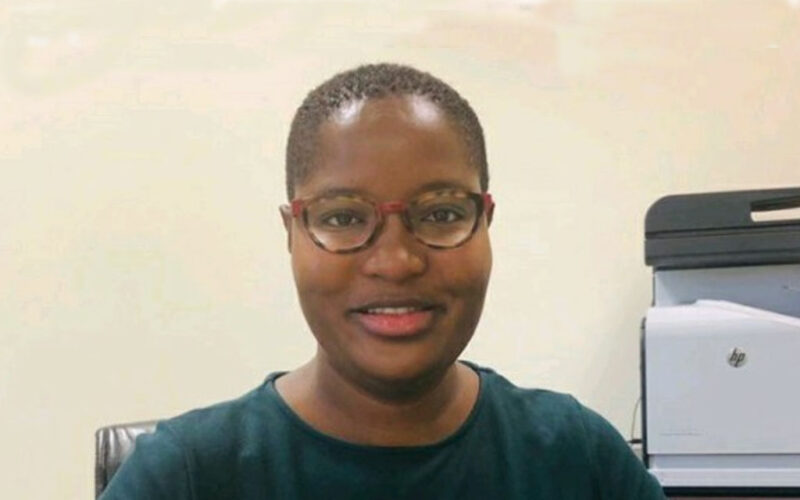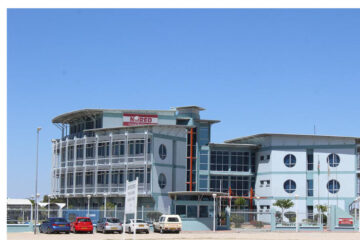THE Ministry of Home Affairs, Immigration, Safety, and Security has urged undocumented people in the Kavango areas and throughout the country to visit their local office and get registered.
According to the Home Affair Ministry this only applies to people who are not registered but have the necessary supporting documentation.
This is in response to the Popular Democratic Movement (PDM) Youth League’s recent assertions that a considerable proportion of residents in Kavango East and West regions lack national documents.
The Ministry has also urged parents to register their newborns at any Ministry hospital-based office as soon as possible after delivery.
Home Affairs Ministry Spokesperson, Margaret Kalo stated that the causes for late birth registration are diverse and often context specific.
According to her, most birth registrations are delayed owing to a number of factors such as the absence of one or both parents, parental ignorance, or cultural and traditional norms that value other social rituals above the registration of a child’s birth.
Kalo further stated that socioeconomic reasons such as poverty, migration, and violence may be contributing to child registration delay.
Although the Ministry is aware of the situation, she noted that it is working hard to determine how it can assist undocumented Namibians.
PDM Youth League earlier this year highlighted that it had conveyed the complaints to the Ministry while analysing the Ministry’s service delivery.
However, Kalo stated yesterday that the Ministry is unaware of PDM Youth League’s communiqué.
“We encourage the public to contact our Public Relations office if they have any questions, comments, or suggestions about our services,” she said.
According to Kalo, depending on the case, the following documents are required for the registrar to be satisfied with the accuracy of the information submitted before him/her: Proof of birth from the hospital, Baptismal certificate (and copy of church register) (if baptized), ID copy of father and mother, death certificate of father or mother (if deceased), mother and father’s declaration, fingerprint verification (if a person is 16 years or older to verify whether the applicant has not already been issued a Namibian ID), and other related documents.
According to Julia Nekwaya, PDMYL Acting Secretary General, many people in the aforementioned two regions are suffering since they are not registered and acknowledged as residents of the country.
She further said that such people have been denied the right to citizenship and other possibilities afforded to Namibians.
Nekwaya urged the Ministry to investigate the situation and offer alternative solutions.
Kavango East Regional governor, Bonifatius Wakudumo clarified last month that the majority of people without national documents in the Kavango community are Angolans who settled in Namibia a long time ago.
The governor pointed out that he is aware of the situation and have all data of Angolans who do not have national documents. Wakudumo, on the other hand, stated that there are some complete Namibians who do not have national documents, and the government is working hard to register them. Some African citizens from other countries who moved to Namibia in the 1960s also lack national documents, he says, but the vast majority are Angolans.
Wakudumo made the remarks in reaction to the Popular Democratic Movement Youth League, which published a statement protesting about the large number of residents in the Kavango West and East regions who do not have identity certificates.
The governor highlighted that the issue of people without national documents in the aforementioned locations was exacerbated by the presence of parents who did not have national documents, necessitating the acquisition of national documents for children born in the country.
“How do you expect government to register national documents for children if their parents do not have national documents? As a result, the entire family will be denied national documents because there is no proof of their parents’ nationality,” he explained.
However, the governor defends his assertion saying the PDM has members in parliament who know exactly what to do to obtain national papers rather than throwing all burdens to the administration.
According to Wakudumo, some political parties only visit communities to identify concerns like this in order to win cheap political points.
“Yes, we recognise that there are people in the regions who lack national documents, but we should not use politics to blame others, instead, we should work together. Some regulations and requirements govern the issuance of national certificates to people like these,” Wakudumo stated.
“Do you want to tell me that someone should just come to Namibia and register for national documents without following any protocols?” he asked, adding that the government is following all procedures to determine how it can help these people.
He highlighted that all necessary paperwork should be provided to aid in the registration of these people with national documents.
“These are issues that the governments of Namibia and Angola are working on to see how they can assist these people. If the parents do not have identity documents, the entire family will be denied national documents because nothing proves their nationality. We are not simply sitting in offices doing nothing. We know exactly how many Namibians and non-Namibians do not have national documents, and we are working hard to guarantee that these people, particularly those who came to Namibia a long time ago, acquire national documents,” he emphasised.
He also stated that there are other challenges involved in such cases, such as the absence of parents and the lack of essential paperwork for registering for national documents. “We are working with traditional leaders and regional councillors to assist these people.” Wakudumo stated that the law provision will outline how government will assist non-Namibians.
He advocated for parents to have national documents in order to make it easier for their children to receive national documents.




